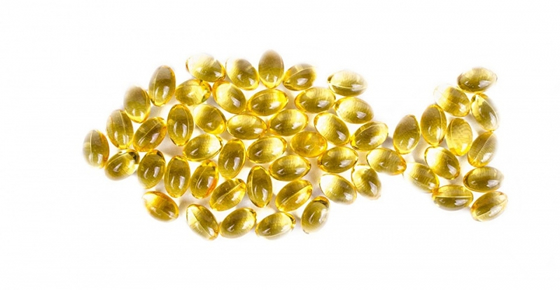
How pharmaceutical companies try to make fish oil (aka food) a prescribed drug.
Subject of jokes and disregard for years by many authorities in the medical world, fish oil is now presented as a new drug which lowers the rate of cardiovascular deaths by 20%. Harvard Medical School Newsletter just published an article about a trial called REDUCE-IT, which claims to revolutionize the way we approach treatment of diabetes and heart diseases with the invention of a new highly-efficient drug. The only problem is, it’s just EPA, found in any fish oil supplementation.
How did we get here: The failure of statin drugs
Heart diseases are still the number one cause of death in the USA, and for the past 20 years medical doctors have been prescribing statin drugs, which function to lower the blood cholesterol level, presumably the cause of heart disease. Because of that (most likely wrong) theory, statin drugs have been among the best selling drugs in the United States. So why develop a new type of drug now? Well, probably because statin drugs don’t work. At least not as good as expected. Despite the (over)use of statin drugs and the multiple campaigns promoting low cholesterol foods, the number of people dying of cardiovascular diseases have been increasing. And that can be explained very easily: high cholesterol does not cause heart disease.
What prevents heart disease?
So the question now is, how can we prevent heart disease? How come in other countries such as Spain or Italy, people consume much more cholesterol-rich food but experience lower rates of heart disease? The answer is because of the Mediterranean Diet.
Often disregarded by the medical community (most doctors will still laugh at you if you mention Mediterranean diet), it has proved to reduce as much as 70% of mortality without lowering the cholesterol levels. One of the beneficial components of this diet is the consumption of seafood, which is a good source of omega-3 fatty acids. Because of that, you can now easily find fish oil supplementation pretty much everywhere.
How did the drug industry react to that
The failure of statin drugs in combination with the success of fish oil supplements made the industry rethink the heart disease drug approach. In collaboration with Harvard Medical School, a recent study showing that a new prescription drug, called Vascepa, supposedly “led to dramatic drops in heart attacks, strokes, and deaths from cardiovascular diseases in people with high tryglycerides”.
The problem with this study
There are several concerning issues regarding this drug, and most of those issues have been brilliantly described by Dr. Alex Vasquez is his last post. But let’s mention a few here:
- Nothing new under the sun: In that Harvard Study, they used Icosapent ethyl, a “highly purified eicosapentaenoic acid ethyl ester”. A very complicated term that means….EPA, which is just found in any fish oil supplement!
- Absence of DHA: Now that we know that this drug is simply EPA, it is quite concerning that it doesn’t contain any DHA, which is another important form of omega-3 fatty acid. Just for reference, pretty much every fish oil supplements contain EPA and DHA. DHA has been proven to be extremely important for the prevention of cancer and heart diseases.
- Placebo used: In the study, they mention that for the placebo group they used mineral oil to”mimic the color and consistency of icosapent ethyl”. The problem is, mineral oil has been known for many years to be harmful for the body.
- Cost: It’s all about business as you can imagine. A descent brand of fish oil bottle (120 capsules) cost about $40. One capsule contains usually 1g of omega-3, which makes the price of 1g of omega-3 to cost $0.33. In the Harvard study, the dosage was 4g a day, which is $1.33 per day. It will be interesting to see how much that new prescription drug (which contains only EPA and no DHA) would cost.
Conclusion
In a sense, we should welcome the idea that pharmaceutical companies are now trying to push the use of essential fatty-acid instead of statin drugs in order to prevent deaths related to heart diseases. However, a more efficient way would be to simply encourage people to adopt a Mediterranean diet and use fish oil supplementation, rather than spending a ton of money to develop a new drug that might be less efficient than what we currently find in natural supplements.
To learn more click here
